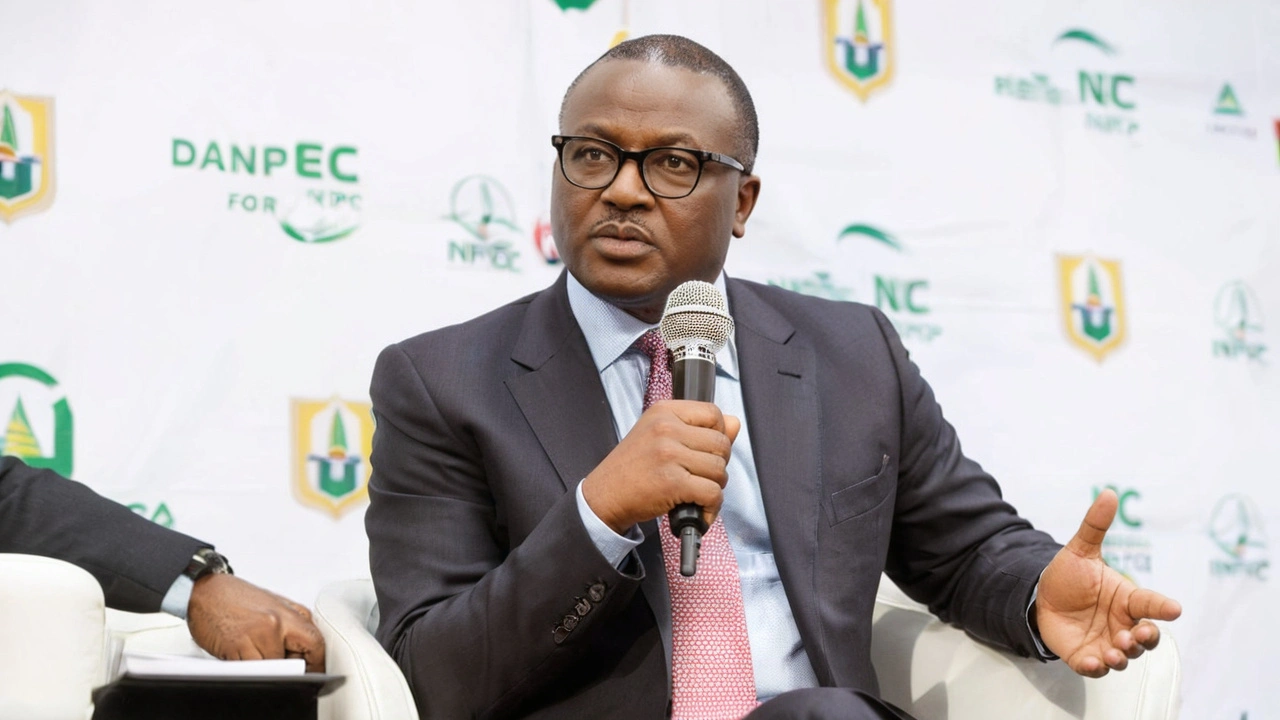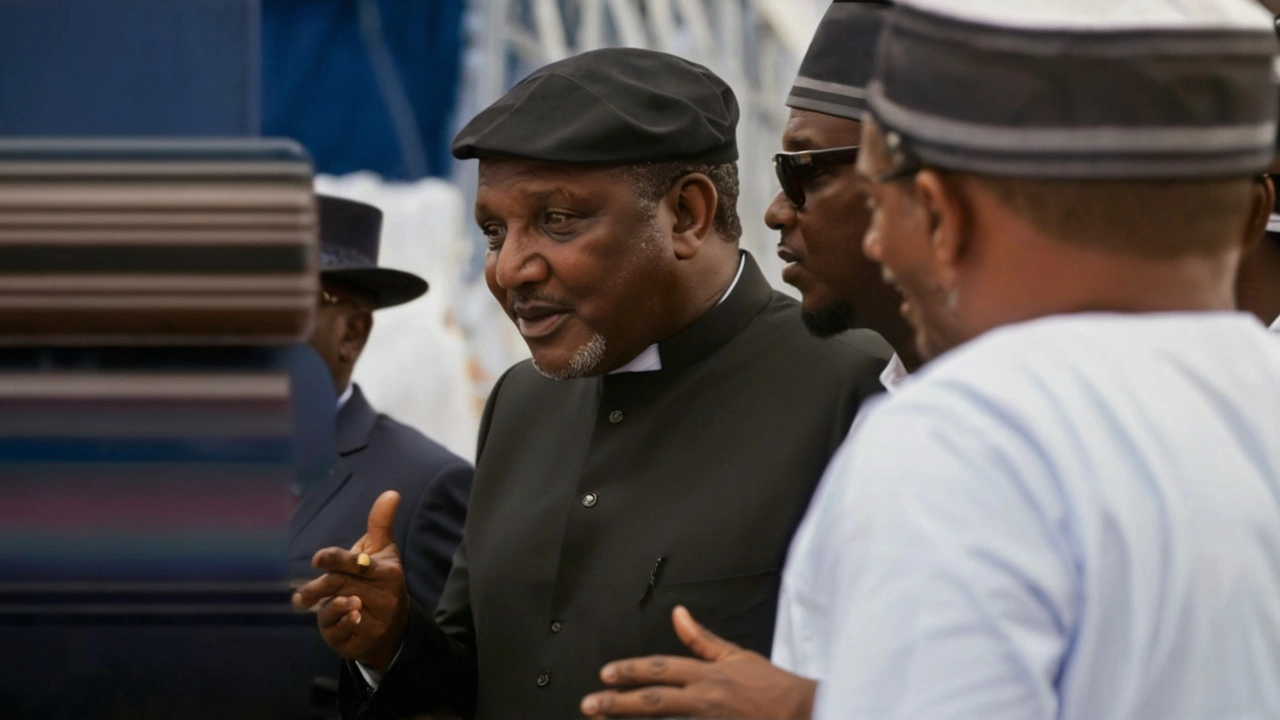Background on the Dangote Refinery Controversy
In recent weeks, tensions have flared between Aliko Dangote, Africa's wealthiest individual, and the Nigerian government. At the center of their dispute is the quality of diesel produced by the Dangote refinery. The Nigerian Midstream Downstream Regulatory Authority (NMDPRA) contends that Dangote's diesel does not meet the sulfur content standards set for West Africa. According to the NMDPRA's assertions, the sulfur content in Dangote's diesel ranges from 650 to 1,200 parts per million (ppm), far surpassing the recommended level of below 50 ppm.
The head of the NMDPRA, Ahmed Farouk, has been vocal in his criticism, emphasizing the potential implications for both the environment and public health. Excess sulfur in diesel can lead to increased air pollution and respiratory problems, among other issues. In response, Dangote has strongly refuted these claims. He maintains that his diesel is, in fact, one of the cleanest available in Nigeria and invites the regulatory body to conduct independent tests to verify his claims. This clash has prompted a deeper investigation by the Nigerian government, particularly the House of Representatives.
Details of the Alleged Quality Discrepancies
Examining the specifics, the NMDPRA's primary concern lies in the sulfur content of the diesel produced by the Dangote refinery. The agency's statements suggest levels between 650 and 1,200 ppm, which starkly contrast with the permissible limit of 50 ppm for the region. Such disparities, if accurate, pose a significant concern. Not only might they breach environmental standards, but they could also indicate potential shortcomings in the refinery's production processes.
Dangote, however, stands firm in his defense. He claims that the diesel from his refinery meets, if not exceeds, the quality standards prescribed. To bolster his argument, Dangote has proposed that the NMDPRA, or any independent third-party, should conduct fresh tests to clarify the diesel's actual sulfur content. This willingness for transparency is an attempt to clear the air and put to rest any doubts regarding the fuel's quality.

Monopoly Claims and Market Dynamics
The controversy extends beyond just diesel quality. There are claims that Dangote seeks a suspension on all diesel importations into Nigeria. Such a move, if realized, would effectively grant his refinery a monopoly over the country's diesel market. Critics argue that this not only stifles competition but also potentially increases prices for consumers.
Dangote has addressed these concerns by suggesting that his intentions are misinterpreted. He clarified that the focus of his operations remains on ensuring the provision of high-quality fuel to the Nigerian market. Moreover, in a surprising declaration, Dangote mentioned being open to the idea of selling the refinery to the Nigerian government if they showed interest. Such an offer hints at the complexities of the business environment and suggests Dangote's willingness to prioritize national interest over personal gains.
Additionally, in light of the monopoly accusations, Dangote has halted his company's plans to foray into steel production. This decision underscores his commitment to preventing any appearance of monopolistic practices and to maintain balanced market dynamics.
Governmental Investigation and Public Interest
The Nigerian House of Representatives' decision to initiate an investigation indicates the seriousness of the allegations. Led by Chairman Ikenga Ugochinyere, the probe aims to gather detailed information before making any definitive statements. The House of Representatives intends to leave no stone unturned, ensuring the concerns raised are thoroughly examined and addressed.
For the Nigerian public, this controversy is more than just a business dispute. The outcome will have direct implications on fuel quality, environmental standards, and market dynamics. At a time when global environmental concerns are paramount, ensuring diesel quality aligns with international standards is crucial.

Conclusion and Broader Implications
The ongoing debate between Dangote and the Nigerian government serves as a microcosm of the larger challenges faced by developing economies. Balancing business interests with public welfare, ensuring regulatory standards, and fostering fair competition are pivotal. All eyes now turn to the findings of the House of Representatives' investigation, which promises to shed more light on the matter.
In the meantime, the dialogue between Dangote and the authorities continues. Both sides seem committed to finding a resolution, albeit from different vantage points. As this story unfolds, it offers crucial insights into the complex interplay between industry giants and regulatory bodies in shaping the future of national economies.

13 Comments
The diesel debate in Nigeria reads like a modern parable of ambition versus accountability.
When a titan of industry claims his product is pure while regulators cite sulfur clouds, the truth becomes a mirage.
Sulfur, invisible to the eye, nevertheless stains the air we breathe and the conscience of a nation.
The numbers tossed around-650 to 1,200 ppm-are not merely statistics but symbols of a deeper mismatch.
One could argue that the refinery, as a crown jewel of African industry, bears a heavier moral weight.
Yet power, like any force, can be blind to the subtle harms it unleashes.
The NMDPRA’s warnings echo the ancient warning that unchecked fire burns the very hearth that fuels it.
If Dangōte’s diesel truly meets the low‑sulfur standard, the accusations become a whisper lost in the wind.
If not, the resulting pollution may become a silent toll on public health, eroding the very foundations of progress.
The monopoly claim adds another layer, suggesting that market dominance could silence dissent as effectively as a pollutant silences breath.
History teaches that when a single entity controls essential resources, the balance of power tilts, often at the expense of the many.
The offer to sell the refinery to the state, though rhetorical, hints at a willingness to reciprocate trust.
Yet trust, once broken, is not restored merely by transaction but by transparent proof.
Independent testing, as proposed, could cut through the fog of rhetoric and reveal the elemental truth.
Until such evidence surfaces, the discourse remains a tapestry woven of ambition, fear, and the hope for a cleaner horizon.
I remain hopeful that transparent testing will bring clarity to all parties involved 😊.
Dangote’s claims smell like a cheap perfume trying to cover a rotten core.
He paints his diesel as "the cleanest" while regulators showcase numbers that could choke a fish.
It’s absurd to think a monopoly can be justified by alleged purity.
The public deserves more than corporate spin.
Stop hiding behind vague offers to sell to the government and give us facts.
Enough drama, give us real test results.
Hey folks, I think it’s important we look at the bigger picture here.
Dangote’s refinery could be a game changer for Nigeria’s economy, but quality can’t be ignored.
Let’s keep the conversation respectful and focus on data, not just hype.
We all want clean fuel and fair prices, right?
Sure, because a few misspelled words magically resolve the sulfur discrepancy.
If we ignore grammatical slip‑ups, why not ignore environmental standards?
Precision matters, both in language and in fuel composition.
Let’s demand rigorous data before celebrating any economic miracle.
I’m curious how the independent labs plan to conduct these tests.
Will they use the same sampling methods that the NMDPRA used?
Also, what’s the timeline for releasing the results to the public?
Transparency would definitely help calm the tension.
The Nigerian people cannot allow a single foreign‑aligned entity to dictate fuel prices.
Our sovereignty depends on protecting domestic markets from monopolistic overreach.
Any attempt to sideline imports must be scrutinized for its impact on national security.
We must enforce the standards that safeguard our citizens and environment.
Dangote’s offer to sell sounds like a strategic retreat or a power play it’s hard to tell
From an analytical perspective, the current dispute underscores the intricate relationship between industrial development and regulatory oversight.
It is essential that both parties engage in constructive dialogue, supported by empirical evidence, to arrive at a resolution that serves the public interest.
The regulatory body should issue a clear, data‑driven statement and ensure compliance with established sulfur limits.
In the theater of economics, each actor wears a mask of intent, yet the audience-our citizens-seeks the unadorned truth.
When sulfur cloaks the diesel, it isn’t just a chemical impurity; it is a metaphor for hidden agendas.
We must peel back the layers, question the motives, and demand clarity.
The prize is a cleaner sky and a fair market, not merely profit.
Yo, I feel ya on that whole mask thing – it’s like everyone’s playing a game and we’re stuck watching.
Let’s not just talk, let’s push for real tests ASAP – no more drama, just facts.
We can’t let big biz hide behind fancy words, we need straight up proof.
Let’s keep the momentum positive and focus on solutions that benefit everyone.